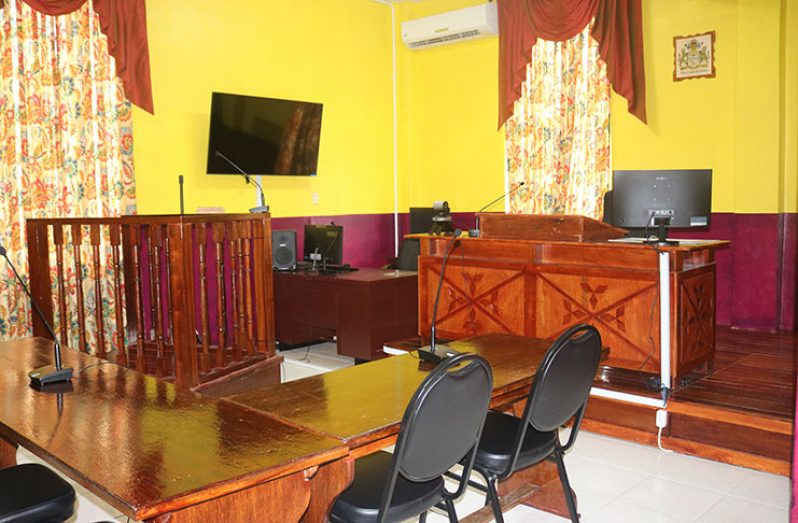WHEN you are travelling towards Stabroek on Croal Street in Georgetown, just before you reach the Avenue of the Republic, if you look to your left you will see a sign above one of the doors attached to the Magistrates Court; it says, ‘Children’s Court’. This is the place where some juveniles (young people who have broken the law) between the ages 14-18, are brought before the court under the new Juvenile Justice Act (2018). As strange as it may sound, one of the main objectives of the Act is to keep children out of court and the criminal justice system. If you feel confused please read on, all will be explained.
There are many reasons and circumstantial factors why young people come into conflict with the law; and many of the cases, when analysed, stem from lack of parental guidance and support. Some parents are failing to give their children a sense of direction, while others do not offer any guidance or nurturing at all. Children need to feel loved, wanted, appreciated and respected by their parents or caregivers, from infancy all the way through to adulthood. They need to know, they have encouragement and assistance that will enable them to develop to their best potential.
Children who lack stability, care and comfort at home tend to drop out of school and spend more time on the streets. Up to quite recently, children who did this could be charged for ‘wandering’ and/or ‘truancy.’ These two misdemeanours were once considered a prelude of things to come, where the possibility of a more serious crime could be committed. However, since the Act was introduced, neither is now regarded as a crime. The document also rules that children under the age of 14 cannot be held criminally responsible.
Before the Act came into being, children who committed crimes were kept in ‘holding cells’ around adult criminals. This experience had the potential to influence the young offender in a negative way. It was therefore felt that children who offend should have a separate court system, one that deals with offences as it relates to children and totally removed from the adult court.
The criminal justice system is no place for children; in fact, children who commit an offence should not be taken to court at all. The Act makes provision for alternative and diversionary measures to be considered on behalf of the offender. Taking a child to court must be the absolute last resort.
One of the Act’s objectives is to rehabilitate young offenders rather than penalise or punish them for their crimes. To this end, each case is examined thoroughly and mitigating factors are taken into consideration. Decisions are always made on the basis of the ‘best interest of the child’ and the young offender’s reintegration into society.
All concerned parties are focused on putting systems in place that will afford juvenile offenders the opportunity to choose productive lifestyles– lifestyles that will enable them to set and accomplish their goals and dreams and eventually allow them to contribute to society in a positive way. The juvenile justice system is a mechanism that aids with this particular rehabilitation process.
Since the Children’s Court opened its doors in December 2018, over 26 cases have been tried to date. These cases cover only the Region Four area. Each region has its own Children’s Court, which usually sits on specific days that have been set aside for children’s cases to be heard in accordance with the Juvenile Justice Act.
The Children’s Court has two presiding magistrates and various officers, including a probation officer and a child protection officer attached to the court. These officers are tasked with collating the relevant information, reports, documents and evaluations that go along with each case. There is also a childcare worker from the High Court, who mans the ‘activity room.’
The childcare and protection officer oversees the protection and the rights of the juvenile offenders. It is important that once young offenders are in the court system, they are treated fairly and afforded their rights and privileges as stipulated in the Juvenile Justice Act. The Childcare and Protection Agency (CPA) is also involved in the pre-screening of juveniles.
Mr Mounter, a Child Protection Officer attached to the court ,said, ‘I don’t believe that the children who come here are difficult children; I believe that they are the products of difficult circumstances and so when I see them, I see an opportunity to reform, to help and to give guidance. They need to understand that whatever they may have done… to be here at this particular time, the court, magistrates, officers, everybody is basically working together in their best interest, to ensure that their needs are provided, to ensure that they are safe and to ensure that they are rehabilitated into society because life is still ahead’.
If you would like more information you can contact the Probation and Social Services Department on 231 6556 or the Childcare and Protection Agency on 227 4082.
If you are concerned about the welfare of a child call the CPA hotline on 227 0979 or email childcaregy@gmail.com
A MESSAGE FROM THE CHILDCARE AND PROTECTION AGENCY, MINISTRY OF SOCIAL PROTECTION


.jpg)











